
IMI/REL was effective against isolates from the United States and Europe.

IMI/REL was effective against isolates from the United States and Europe.

A new study reveals that HIV clinicians may not be doing enough to monitor for opioid abuse/misuse among patients.

Researchers find that Treg cells could be vital in protecting infants in the womb from mother-to-child HIV transmission.

Molecular diagnostics provide faster, more complete results than traditional culture-based tests, and their use may improve outcomes for patients with chronic wounds and skin and soft tissue infections (SSTIs).

The CDC has announced an investigation of a multistate outbreak of Salmonella Adelaide infections that have been linked with pre-cut melon.

Researchers from the Chang-Gung Memorial Hospital find that half of influenza cases in patients admitted to the ICU received a false-negative rapid influenza antigen test.
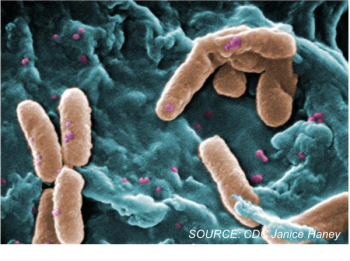
In the past 17 years, the number of hospitalizations due to cUTIs has risen by 50%.

Emerging Candida species prove capable of virulent spread in health care facilities, leading to outbreaks.

Pooled analyses of 2 phase 3 trials have conclusively established the safety and effectiveness of iclaprim compared to vancomycin in the treatment of acute bacterial skin and skin structure infections (ABSSSI).

The President’s Forum at this year’s ASM Microbe meeting opened the eyes of many in the audience to the capacity of microorganisms to evolve.

The incidence of IE was lower in patients having a lower white blood cell count and lower numbers of platelets.

The results of a new study have revealed that carbapenem resistance conferred by plasmids can be transferred among unrelated bacteria in the health care setting.

The pooled results have hammered home the promise of eravacycline for the treatment of patients with cIAIs who are colonized by drug-resistant bacteria.
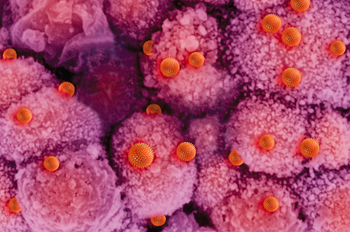
Anne Schuchat, MD, provides some history and insights on CDC’s role in safeguarding public health when the microbial world collides with the human world.
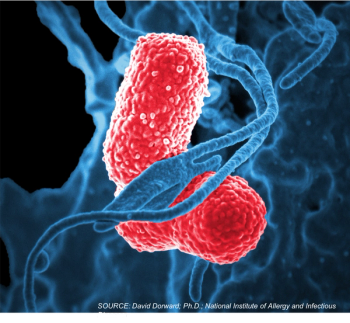
An extremely virulent (hypermucoviscous) strain of Klebsiella pneumoniae that is resistant to carbapenem and colistin has been isolated for the first time from a patient in the United States.

Sixty-nine out of the 70 colistin-resistant isolates had either mcr-1 and/or mcr-3 genes.

Researchers from the University of Mauritius identify factors that impact the growth of pathogens on kitchen towels, which can potentially result in food poisoning.

Empiric use of fluoroquinolones looks to be an alternate option for the treatment of gram-negative bloodstream infections when risk factors for antimicrobial resistance are not present.

In case you missed them, we’ve compiled a list of the latest recalls posted this week.

Researchers from Vanderbilt University Medical Center determine the metabolic pathway that S aureus uses to survive in bones.

Stay up-to-date on the latest infectious disease news by checking out our top 5 articles of the week.

A prospective examination of over 2600 patients has not revealed a difference in their outcome compared with patients who are non-neutropenic when it comes to bacteremia caused by Staphylococcus aureus.

The opening session of ASM Microbe 2018 cuts a broad swath through the science of microbiology.

What makes a germ more likely to cause a pandemic? A new report poses a novel framework for addressing this question.

McGill University researchers find that infection with C difficile might more likely be linked to infected than colonized donors.

A lack of coordination among regulating bodies, pharma manufacturers, standard development organizations, and laboratory testing device companies has muddied efforts to stop antibiotic resistance; the 21st Century Cures Act aims to fix that.
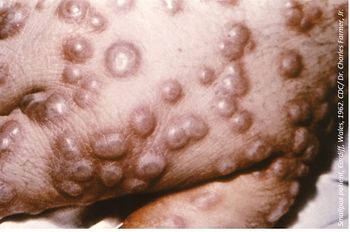
The FDA has granted Orphan Drug Designation to Chimerix’s brincidofovir for the treatment of smallpox.

As the outbreak claims more lives, the FDA performs extensive traceback efforts to identify a primary source.

The therapy, used to treat and prevent bloodstream infections and related complications in patients who have central venous catheters, has been found to be ineffective in pediatric cancer patients.
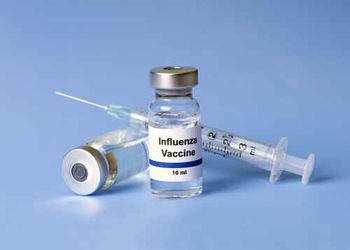
The overall rate of health care personnel receiving flu shots has gone up in recent years, but a new study finds that much of the increase is due to policies held at non-VA hospitals.